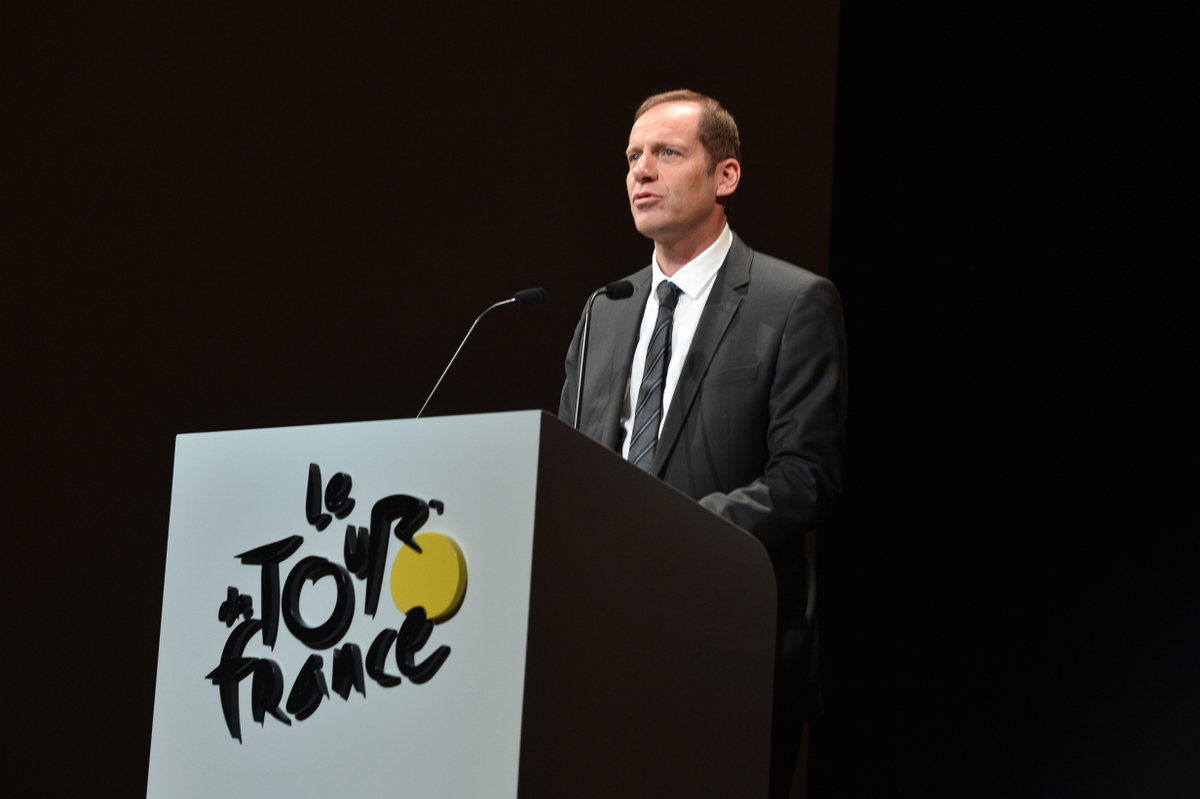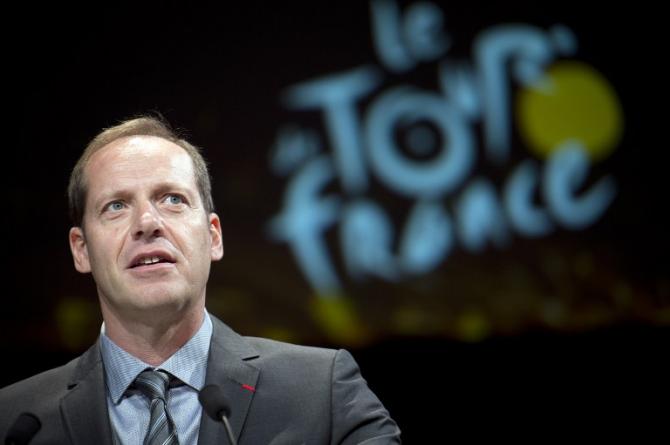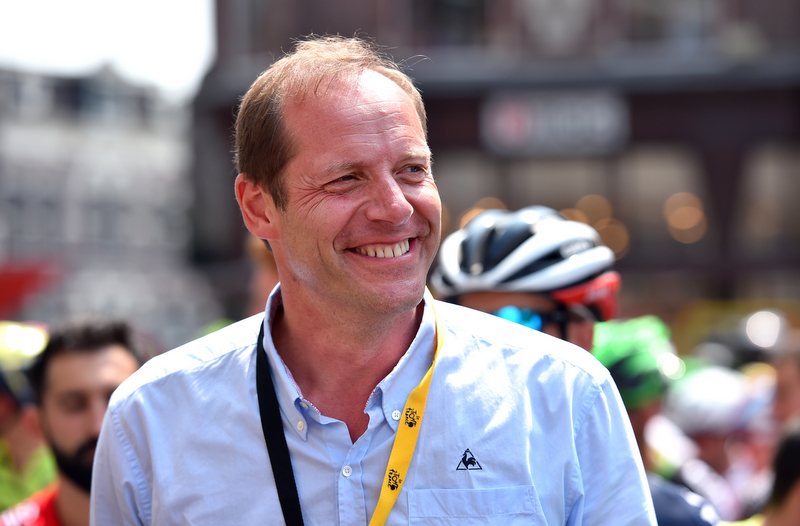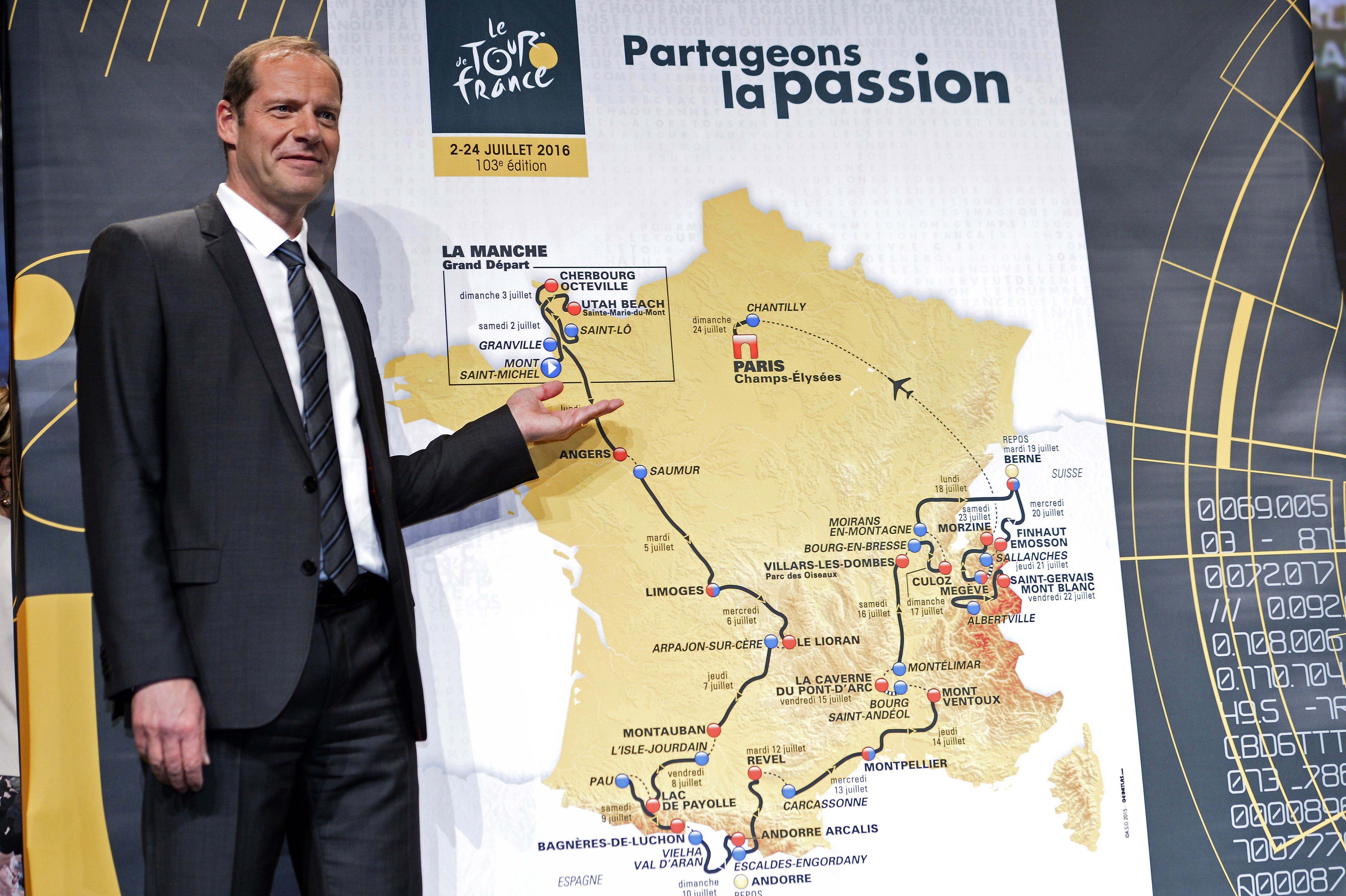Prudhomme supports reduced eight-rider teams at Tour de France
Director cites improved rider safety as the main objective
The latest race content, interviews, features, reviews and expert buying guides, direct to your inbox!
You are now subscribed
Your newsletter sign-up was successful





In the midst of heated discussions between the UCI, teams and race organisers about the WorldTour reforms, Christian Prudhomme has expressed his support for reducing the number of riders per team in Grand Tours. In an interview with Velonews' Andy Hood, Prudhomme, director of the Tour de France, says that allowing eight riders per team, instead of nine, will help improve rider safety.
Cookson welcomes RCS Sport support for WorldTour reforms
UCI President Brian Cookson Q&A
Feltrin: UCI WorldTour reforms need to be finalised or abandoned
Race organisers reject UCI WorldTour reforms
UCI seminar vital for WorldTour reform process
Brian Cookson: The reform of professional cycling is vital for the future of our sport
"Concerning the question of reducing the number of riders per team, above all, we want to preserve the security," Prudhomme told Velonews. "It's a fundamental question that should be considered a priority before everything else. Before thinking about the number of teams in a race, we want to consider the question of security before anything else."
The UCI announced that it had approved the key principles of the WorldTour reforms, in a vote by the UCI's Professional Cycling Council and the UCI Management Committee. The announcement was made at the World Championships in Richmond, Virginia, in September. At Worlds, Cookson also spoke with Cyclingnews about some of the difficulties in balancing the needs of the promoters, teams and other stakeholders when it came to the WorldTour reforms.
However, in November, the International Association of Cycling Race Organizers (AIOCC) voted to reject the proposed WorldTour reforms by an overwhelming majority. At that meeting the AIOCC also voted unanimously to reduce the number of riders per team to eight at the Grand Tours, and down to seven at other major stage races.
The Cyclistes Professionnels Associés (CPA), which represents the riders, and some teams do not agree with reducing the number of riders per team at these events.
Key stakeholders gather in Barcelona today for a two-day seminar to again discuss the details of the UCI WorldTour reforms due to be introduced in 2017, and the number of riders per team is just one of many concerns that will be addressed.
UCI President Brian Cookson wrote in an exclusive editorial for Cyclingnews that, "I believe the reform of professional cycling is vital for the future of our sport. At the UCI we've put a lot of extra time into the reforms, and the UCI Management Committee is unanimously behind the plans. Now there's a lot of work to do on the details and on their implementation.
The latest race content, interviews, features, reviews and expert buying guides, direct to your inbox!
"I'm not expecting a showdown with anyone in Barcelona; I'm expecting a sensible, adult discussion. I think the UCI's position is pretty clear. We've got to develop and improve the economy of men's professional cycling. We've got to do more to restore the credibility of our sport after years of damage; we've got to find a way of globalising the sport while at the same time protecting our heritage and looking after what makes road cycling so special. We've also got to find ways to further engage with our fans so people have more opportunities to experience our sport in all its glory."
Although rider safety was a top priority for Prudhomme when considering reducing the number of riders per team in the Grand Tours, he said it would also help to open up the races so that they are less controlled. And in turn, reducing team sizes at the Grand Tours would freeing up riders to attend other smaller races during the season.
"We also hope, as a consequence, that this will allow races to open up, and be less blocked, with a peloton that is less controlled and closed down by the big teams," Prudhomme told Velonews. "It's obvious that some teams have the means to control the race and dictate the action by the quality of its riders. To eliminate one rider would liberate some teams and open up the race."

